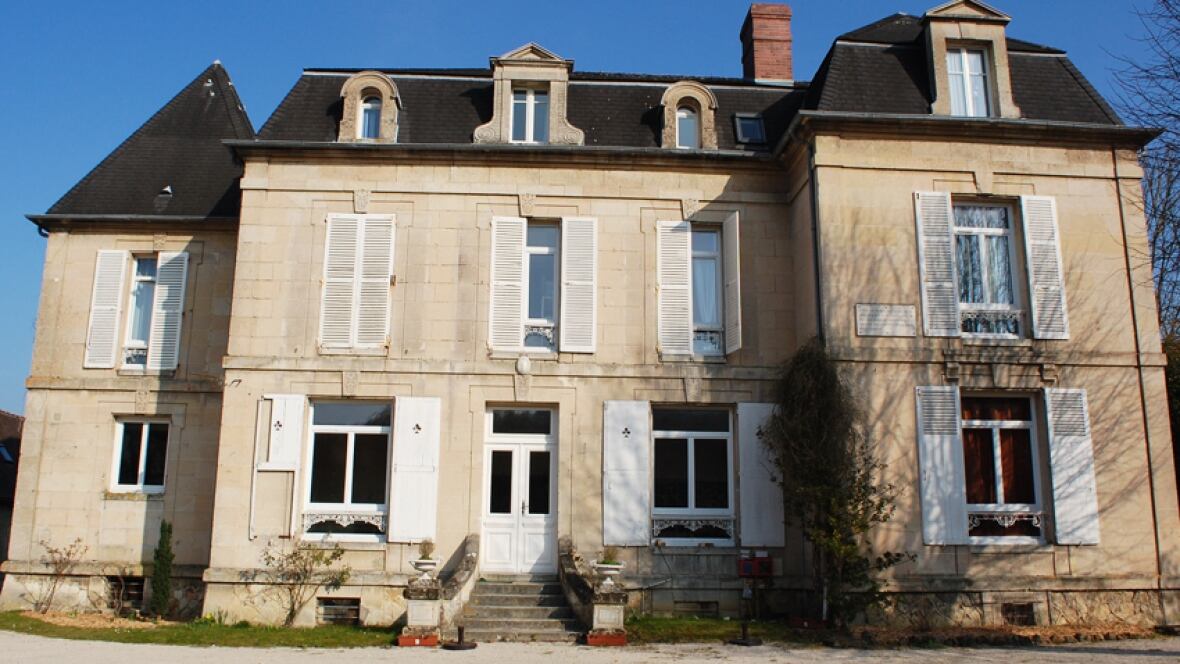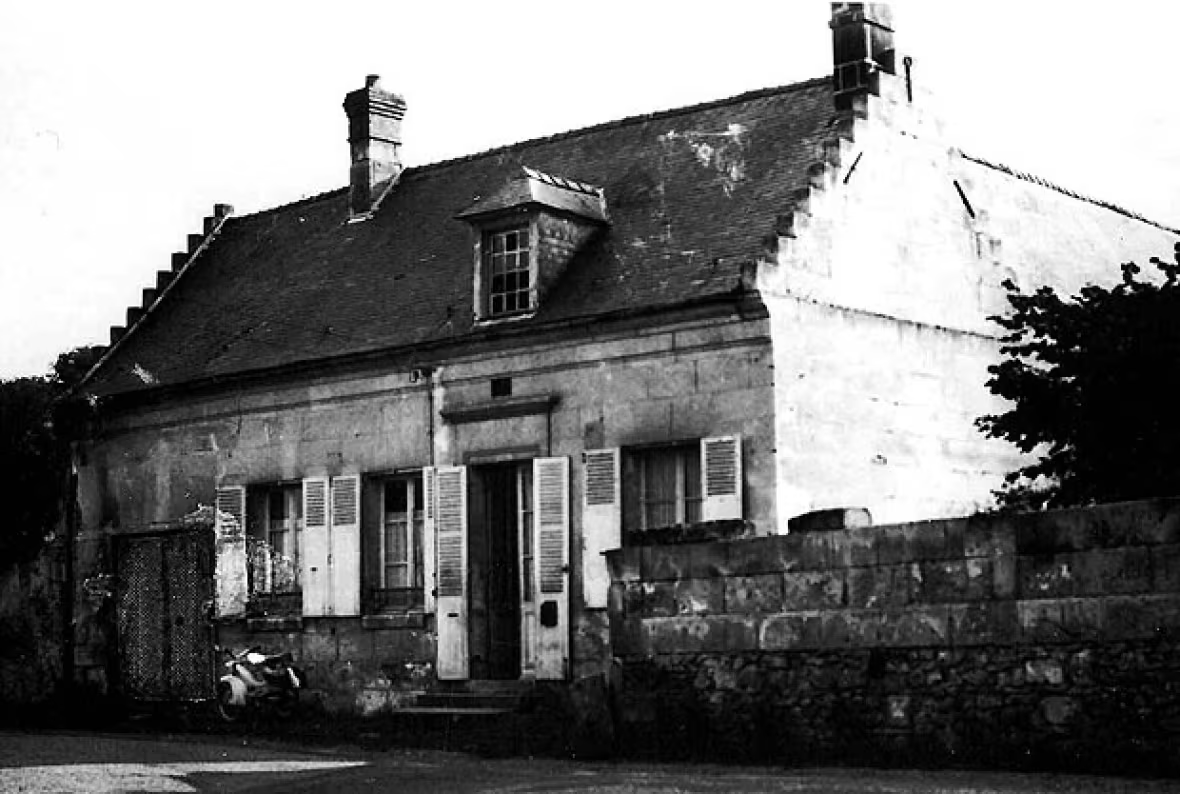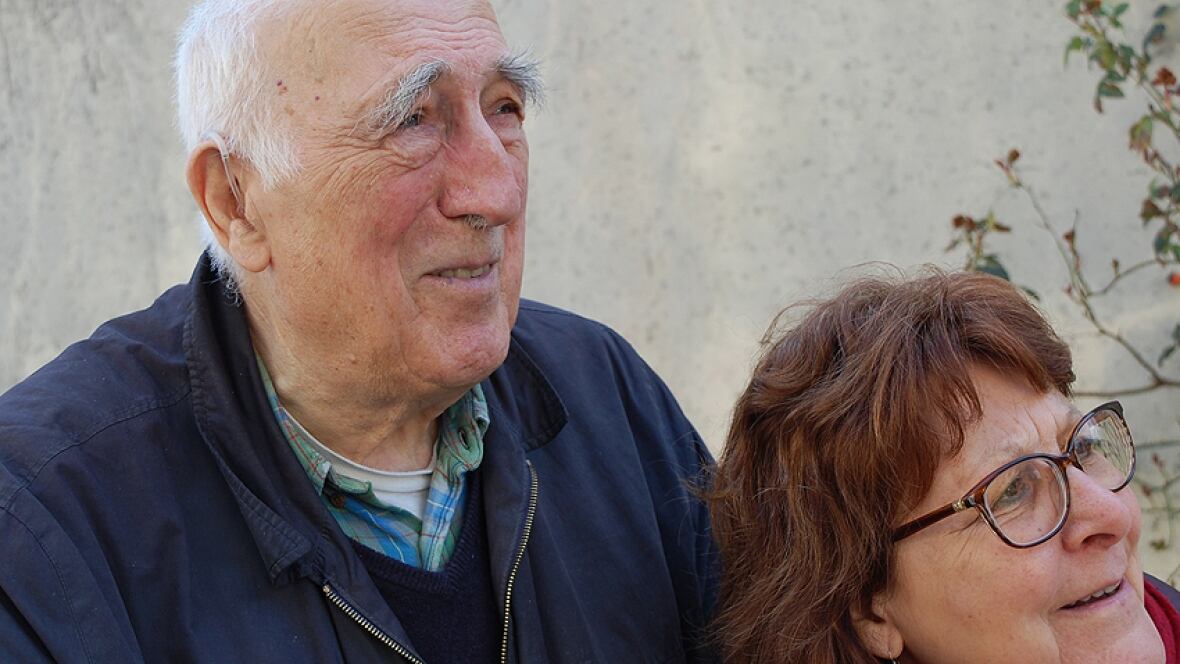Remembering Jean Vanier: The Rabbit and the Giraffe, Part 2
IDEAS pays tribute to a Canadian humanitarian and visionary

"Community is a sign that love is possible in a materialistic world." Jean Vanier, who founded the L'Arche movement in 1963 for people with profound disabilities, quickly learned that "normal" people have much to learn about being human by watching those we perceive as weak. Jean Vanier died on May 7 in France at the age of 91.
In memory of, and in tribute to, one of the most influential people of our time, we present this rebroadcast of Philip Coulter's series The Rabbit and the Giraffe, recorded in 2016.
Remembering Jean Vanier by Philip Coulter
The first time I met Jean Vanier was in 1997. He was going to be the 1998 CBC Massey Lecturer, and I was going to be his producer, which meant working closely with him while he was writing, and then recording the five lectures for broadcast.
We met initially over dinner at the Val Fleuri, a large house that had been the local asylum before Jean took it over and eventually turned it into a L'Arche home.

Dinner with the core members was a cheerfully anarchic and noisy affair. Jean sat opposite and grilled me in an amiable way about our expectations of what he would do.
He didn't like a previous set of Massey Lectures we'd sent him: a fine analysis of the state of the world, he thought, but no conclusion, and no suggestion about how to make the world a better place.
Jean had lots of ideas about making the world a better place — for starters, the idea that everyone had to be included, particularly those on the margins.

Not just because that principle was fair and equitable, but because he believed that the marginalized, the poor, the downtrodden and the intellectually "disabled" know things the rest of us don't know. They have an invaluable gift, if we'd only take care to listen. That, he thought, is how to build the good society.

Those ideas were front and centre in his groundbreaking 1998 CBC Massey Lectures Becoming Human.
We sat in his little cottage in Trosly-Breuil, with the CBC microphone perched on a pile of books, while he recorded his lectures, every day for a week until they were done. Birdsong and the occasional car sound found their way into the recording, but that was fine — that wasn't what people would be listening for.
Over the years, I made a number of programs for Ideas with Jean; I guess I always thought I hadn't quite got there, hadn't quite put it all together. One of the things that always fascinated me about Jean was his ability to speak of spiritual things in secular terms, and secular things in spiritual terms.
To him, there was an arc of thought that ran through all things: the world was of a piece and we all spoke the same language. All our journeys were one journey. That was a monumental idea — it defuses conflict and invites everyone to play their part in the orchestra of life.

The final series we recorded together, The Rabbit and the Giraffe, was an attempt to explore some of this, and Jean's lifelong explorations of both Aristotle and the Gospel of John: two writers examining the same thing from very different sides of culture and faith.
The last project we were planning was to record a conversation about Jean's commentaries on the Gospel of John, but he eventually felt too frail, and so that never happened.
What he's left us, though, is incalculable: many books and recordings of course, and a better way of living for countless people in need — but mostly one big idea: that each of us, no matter how lowly, has something to give, and the world needs that thing, even if it's only a moment of grace. – Philip Coulter
The Rabbit and the Giraffe
We're coming back to that initial reality -- that we are vulnerable, that we are poor -- so the reality of the human being is that we are all terribly vulnerable people. There's a lot of garbage between me and the well, and in order to drink from the well I have to get rid of the garbage. So what is that garbage? It is the garbage which is the garbage of culture: we have to conform to what people want of us. – Jean Vanier

In 1964 Jean Vanier invited two men with developmental needs, Raphael Simi and Philippe Seux, to live with him in a small house in the French village of Trosly-Breuil.
He named their house "L'Arche," after Noah's Ark. Bit by bit their little family grew, as new people arrived, looking for a home, and more houses were needed in the village.
Other helpers arrived too, and now, fifty-something years later, L'Arche is an international organisation, with communities in thirty countries.

More important, perhaps, Jean Vanier changed all of our lives, because his radical ideas about mental and developmental abilities have, to use a cliche, changed the conversation all over the world about what it means to be normal, whereabouts among us there are gifts we overlook, what the Good Society should look like, and how we should regard each other.
Jean Vanier was a practical man, he was at the forefront of the group home movement, but he was also a visionary, a philosopher and a humanist.

One of his images was about the rabbit and the giraffe: the giraffe sees what's off in the distance and goes there in great strides; the rabbit, however, just sees what's directly in front, and proceeds by nibbles.
Jean Vanier saw himself as the rabbit. So we called our programme The Rabbit and the Giraffe.
**This episode was produced by Philip Coulter. This episode originally aired September 19, 2016.